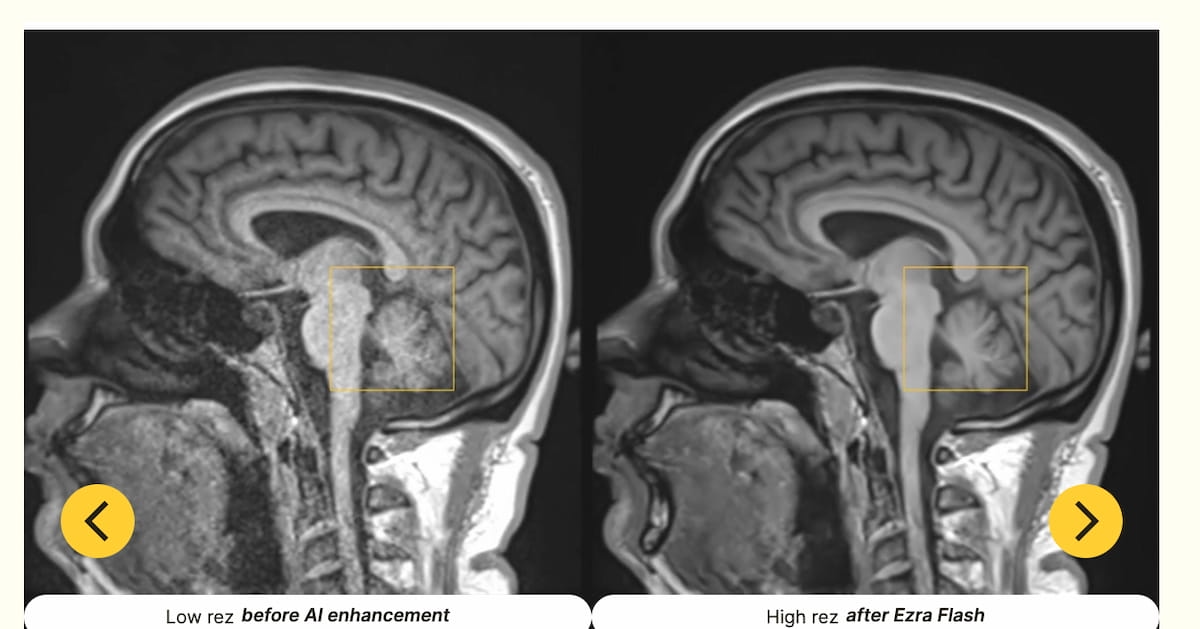FDA Clears Updated Ezra Flash AI Software for MRI Scans
The updated AI-enabled software reportedly facilitates enhanced MRI imaging of the brain, abdomen, and pelvis.
The Food and Drug Administration (FDA) has granted 510(k) clearance for updated artificial intelligence (AI) software that bolsters image quality on magnetic resonance imaging (MRI) scans.
Emphasizing noise reduction without sacrificing diagnostic integrity, the Ezra Flash AI software bolsters the quality of MRI scans of the brain, abdomen and pelvis, according to Ezra, the manufacturer of Ezra Flash AI.
In addition to enhanced neuroimaging, the newly FDA-cleared updates for the Ezra Flash AI software may provide visualization with abdominal and pelvic MRI scans, according to Ezra, the developer of the software. (Images courtesy of Ezra.)

The company maintained that the enhanced image quality obtained with Ezra Flash AI will provide greater clarity in MRI interpretation and precise analysis to facilitate a more timely diagnosis.
"The FDA clearance of Ezra Flash represents a significant advancement in making AI-powered cancer screening more accessible," said Daniel K. Sodickson, M.D., Ph.D, the chief scientific advisor at Ezra and chief of innovation in the Department of Radiology at the New York University Grossman School of Medicine. "This technology enables faster, more accurate early cancer detection, ultimately giving patients and their doctors clearer insights for making informed healthcare decisions."
Newsletter
Stay at the forefront of radiology with the Diagnostic Imaging newsletter, delivering the latest news, clinical insights, and imaging advancements for today’s radiologists.
Stroke MRI Study Assesses Impact of Motion Artifacts Upon AI and Radiologist Lesion Detection
July 16th 2025Noting a 7.4 percent incidence of motion artifacts on brain MRI scans for suspected stroke patients, the authors of a new study found that motion artifacts can reduce radiologist and AI accuracy for detecting hemorrhagic lesions.